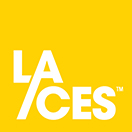Presentations from the 2024 LAF Innovation + Leadership Symposium
On June 6, 2024, the six 2023-24 LAF Fellows presented their projects at the LAF Innovation + Leadership Symposium in Washington, DC. This unique fellowship program provides a $25,000 award that supports working professionals as they develop and test new ideas to bring about impactful change to the environment and humanity and increase the visibility and leadership role of landscape architecture.
If you view the full recording of the symposium or watch all six presentations below, you can earn 2.0 PDH (LA CES/HSW) following successful completion of a short quiz. More on earning CEUs.
FELLOW PRESENTATIONS
Individual presentations are also available for viewing on the LAF YouTube channel.
Material Shift: Facilitating Radical Change in Site Construction Materials and Details
Meg Calkins, Professor, North Carolina State University
As 80-90% of the carbon footprint of a constructed site comes from the materials used to build it, landscape architects must radically change their material specifications and details to realize carbon-zero sites by 2040. To inform this shift and give landscape architects accessible and practical information, Meg has researched and compiled performance information on substantially modified material mixes, alternative materials, and new detailed approaches for reduced environmental footprints.
Additional Information and Resources: Meg's Mid-Year Spotlight Article
Cool Conscious Cities: Promoting Cool Equity for All
Kimberly Garza, Principal, Atlas Lab
Across the country, ever-increasing heatwaves, for longer durations, are becoming the norm. Studies show that people of color and those living in poverty experience hotter temperatures in 97% of U.S. cities compared to white people and the wealthy. The Cool Conscious Cities campaign highlights the pressing need for heat mitigation solutions in disadvantaged communities and provides research, tools, and solutions for city leaders, policymakers, planners, and allied design professionals to design and promote cool cities for all.
Additional Information and Resources: Kimberly's Mid-Year Fellowship Spotlight
The NeuroScapes Design Collective
Kathryn Finnigan, Designer and Qualitative Researcher
Approximately 15-20% of the worldwide population is estimated to fall under the umbrella of neurodivergence, with sensory sensitivities commonly impacting the experience of designed outdoor environments for these user groups. Building on qualitative research insights and the resounding call from study participants with lived experiences in neurodiversity to co-create neuro-inclusive environments, Kathryn founded the NeuroScapes Design Collective with several co-founders. This grassroots initiative aims to advance the conversation on the intersections of landscape and urban design with neurodiversity and sensory sensitivities by creating content, fostering awareness, and community building.
Additional Information and Resources: Kathryn's Mid-Year Spotlight Article
It Started in the Park: Preserving the Cultural Identity of Basketball Courts
Johnny Shakir Macon, Lecturer, Morgan State University
Johnny's cultural landscape research examines how basketball courts, situated in urban parks in major cities, served as place-makers and incubators for the development of Black culture. These performative spaces produced an intertwined development of sport, music, dance, fashion, and social aspiration. This will enable landscape architects to convey the value of these places and acknowledge their role as shapers of culture.
Additional Information and Resources: Johnny's Mid-Year Spotlight Article
The Biodiversity Victory Garden: Mitigating Global Species Loss with the 21st Century City
Betsy Peterson, Owner, August Design Collaborative
Inspired by the success of Victory Garden campaigns during WWII, this project similarly animates research into grassroots action, offering hope during a global crisis. Human activities have brought about the sixth mass extinction event and conservation alone will not save species from decline; habitat must be stitched into our cities to achieve the global 30 x 2030 challenge. The Biodiversity Victory Garden movement offers simple actions to activate home gardens and interstitial, urban spaces into a rich network for biodiversity.
Additional Information and Resources: Betsy's Mid-Year Spotlight Article
Engaging K-12 STEAM Public Education Efforts for Future Landscape Architects
Douglas Williams, Lecturer and Film/TV Artist, School of the Art Institute of Chicago
Landscape architecture is a critical profession for solving climate and social challenges faced by disadvantaged communities. However, relatively few African Americans pursue it as a career path. How can this audience discover this essential field alongside existing K-12 STEAM educational efforts in a major urban city like Chicago? This project uses ethnographic methods to film, document, and analyze educational programs and events aimed at building interest and relationships for a career in landscape architecture.
Additional Information and Resources: Douglas' Mid-Year Spotlight Article
Continuing Education Credits

The symposium is approved for 2.0 Professional Development Hours (PDH) through the Landscape Architecture Continuing Education System (LA CES) and meets the health, safety and welfare requirements (HSW).
Learning Objectives
- Understand the role of landscape architects and opportunities for action with issues such as shade equity, K-12 STEM engagement, insect biodiversity, the cultural significance of basketball courts, reducing carbon through material selection, and designing for neurodiversity.
Learn about the research and process that landscape architects have experienced over the course of their fellowship year in making transformational steps in the development of project work that contributes to innovation and leadership in the profession, the environment, and humanity.
Gain inspiration for how to work toward transformative change in your own work.
To earn 2.0 PDH (LA CES/HSW):
- View the six recordings above or watch the full symposium recording.
- Complete the short quiz by following the link below. (You must score 75% or higher.)
- Wait ~2 weeks to receive your confirmation email once the quizzes are graded and results submitted to LA CES.
By completing this quiz, you are also signing up to receive newsletters and program announcements from LAF. You can edit your subscription preferences or unsubscribe at any time.
FULL Symposium
The 2024 LAF Innovation + Leadership Symposium can be viewed in its entirety. Runtime is 2:25:00
Symposium Program
Welcome + Opening Remarks
Presentations: Kimberly Garza, Douglas Williams, Kathryn
Moderated Audience Q&A
Presentations: Betsy Peterson, Johnny Shakir Macon, Meg Calkins
Moderated Audience Q&A
Closing Remarks











